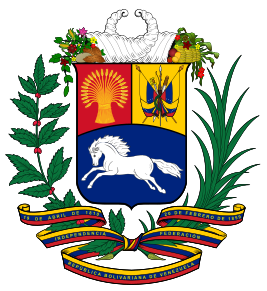
The politics of Zimbabwe takes place in a framework of a full presidential republic, whereby the President is the head of state and government as organized by the 2013 Constitution. Executive power is exercised by the government. Legislative power is vested in both the government and parliament. The status of Zimbabwean politics has been thrown into question by a 2017 coup.

The Politics of Azerbaijan takes place in a framework of a semi-presidential republic, with the President of Azerbaijan as the head of state, and the Prime Minister of Azerbaijan as head of government. Executive power is exercised by the president and the government. Legislative power is vested in both the government and parliament. The Judiciary is nominally independent of the executive and the legislature. The state system of Azerbaijan defines the Constitution of the Republic of Azerbaijan. According to the constitution, Azerbaijan is a democratic, secular, unitary republic.

In political science, an initiative is a means by which a petition signed by a certain minimum number of registered voters can force a public vote in parliament called an indirect initiative or via a direct initiative, the latter then being dubbed a Popular initiated Referendum.
A constitutional amendment is a modification of the constitution of a polity, organization or other type of entity. Amendments are often interwoven into the relevant sections of an existing constitution, directly altering the text. Conversely, they can be appended to the constitution as supplemental additions (codicils), thus changing the frame of government without altering the existing text of the document.

The current Constitution of France was adopted on 4 October 1958. It is typically called the Constitution of the Fifth Republic, and replaced that of the Fourth Republic dating from 1946. Charles de Gaulle was the main driving force in introducing the new constitution and inaugurating the Fifth Republic, while the text was drafted by Michel Debré. Since then the constitution has been amended twenty-four times, most recently in 2008.

Heydar Alirza oglu Aliyev was an Azerbaijani politician who served as the third President of Azerbaijan from October 1993 to October 2003. As national president he held constitutional powers, but his influence on Azerbaijani politics had begun years earlier. As a young man he had joined the Azerbaijan SSR People's Commissariat for State Security (NKGB) and quickly rose to the rank of Major-General.
The Twenty-seventh Amendment of the Constitution Act 2004 amended the Constitution of Ireland to limit the constitutional right to Irish citizenship of individuals born on the island of Ireland to the children of Irish citizens. It was approved by referendum on 11 June 2004 and signed into law on 24 June of the same year. It affected in part changes made to the Constitution by the Nineteenth Amendment of the Constitution of Ireland which was passed as part of the Good Friday Agreement.
The Constitution of Ukraine is the nation's fundamental law. The constitution was adopted and ratified at the 5th session of the Verkhovna Rada (parliament) of Ukraine on June 28, 1996. The constitution was passed with 315 ayes out of 450 votes possible.

A seven-question referendum was held in Belarus on 24 November 1996. Four questions were put forward by President Alexander Lukashenko on changing the date of the country's independence day, amending the constitution, changing laws on the sale of land and the abolition of the death penalty. The Supreme Council put forward three questions on constitutional amendments by the Communist and Agrarian factions, local elections and the national finances.

A constitutional referendum was held in Chad on 6 June 2005. The amendments to the constitution were approved by 66% of voters.
The Fundamental Law of Hungary, the country's constitution, was adopted by Parliament on 18 April 2011, promulgated by the President a week later and entered into force on 1 January 2012. It is Hungary's first constitution adopted within a democratic framework and following free elections.
The legal system of Azerbaijan is based on civil law. As the country was a republic of the Soviet Union until 1991, its legal history has also been influenced heavily by socialist law. However, after the collapse of the Soviet Union, Azerbaijan became independent by enactment of the constitutional act of national independence on October 18, 1991. Azerbaijan started reformation of the legal system by the establishing of democratic reforms. This was followed by the adoption of the first Constitution in 1995 which is the foundation of the legislative system of the modern country. The Constitution creates the system of presidential republic with a separation of powers among the Legislative, Executive and Judicial branches of the government in order to prevent abuse of power.

The Constitution of Azerbaijan was adopted on 12 November 1995 by popular referendum. This Constitution was the first Constitution of independent Azerbaijan, the Azerbaijan Democratic Republic founded in 1918 and existed 23 months until 1920 was not able to adopt its constitution. Therefore, the history of Constitution building in Azerbaijan generally starts from the period of Azerbaijan being part of Soviet Union. The first Constitution of Azerbaijan SSR was adopted in 1921 and was in accordance with the Constitution of USSR. The last Constitution of Azerbaijan SSR was adopted on 21 April 1978 and also was in line and form of USSR Constitution. The first Constitution of independent Azerbaijan consists of 5 chapters, 12 sections and 147 articles. It was amended on 24 August 2002 and again on 18 March 2009. It carries the "highest legal force" in Azerbaijan as per article 147. The most recent amendments to the Constitution were approved after the Constitutional referendum held on 26 September 2016. In 2002, 31 amendments were made to 22 articles; in 2009, 41 amendments were made to 29 articles; and in 2016, 23 articles were amended and new 6 new articles were added.

A presidential election was held in Azerbaijan on 15 October 2008. Ilham Aliyev of the New Azerbaijan Party was re-elected with 87% of the votes, according to official results. Several major political parties, including Musavat, the Azerbaijan Popular Front Party, Azerbaijan Liberal Party, and the Azerbaijan Democratic Party boycotted the vote because of alleged poll-fixing and oppression of political opponents.

The 2009 referendum was a vote in which the citizens of Venezuela approved Amendment No. 1 of the Constitution of Venezuela; this abolished term limits for the offices of President, state governors, mayors and National Assembly deputies.
The Twenty-ninth Amendment of the Constitution Act 2011 is an amendment to the Constitution of Ireland which relaxes the previous prohibition on the reduction of the salaries of Irish judges. It was approved by a referendum on 27 October 2011 signed into law on 17 November 2011. It was held on the same day as a referendum on Oireachtas Inquiries, which was rejected, and the presidential election at which Michael D. Higgins was elected.

Presidential elections were held in Azerbaijan on 9 October 2013. The result was a victory for incumbent President Ilham Aliyev, who received 84.5% of the vote, whilst leading opposition candidate Jamil Hasanli finished second with 5.5% of the vote.
After gaining independence, Azerbaijan has taken important measures throughout the country to improve its legal system, enhance justice and efficiency.










